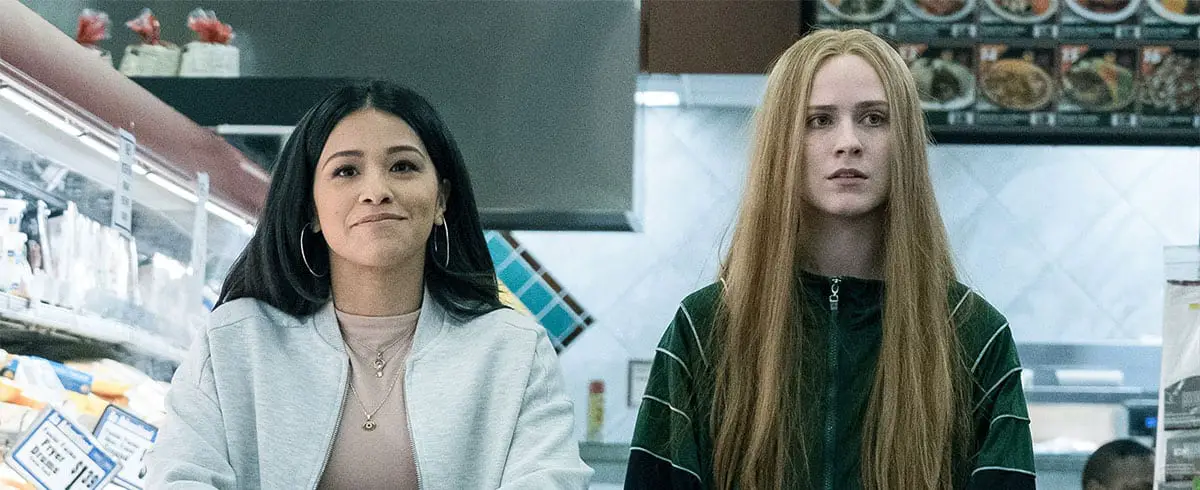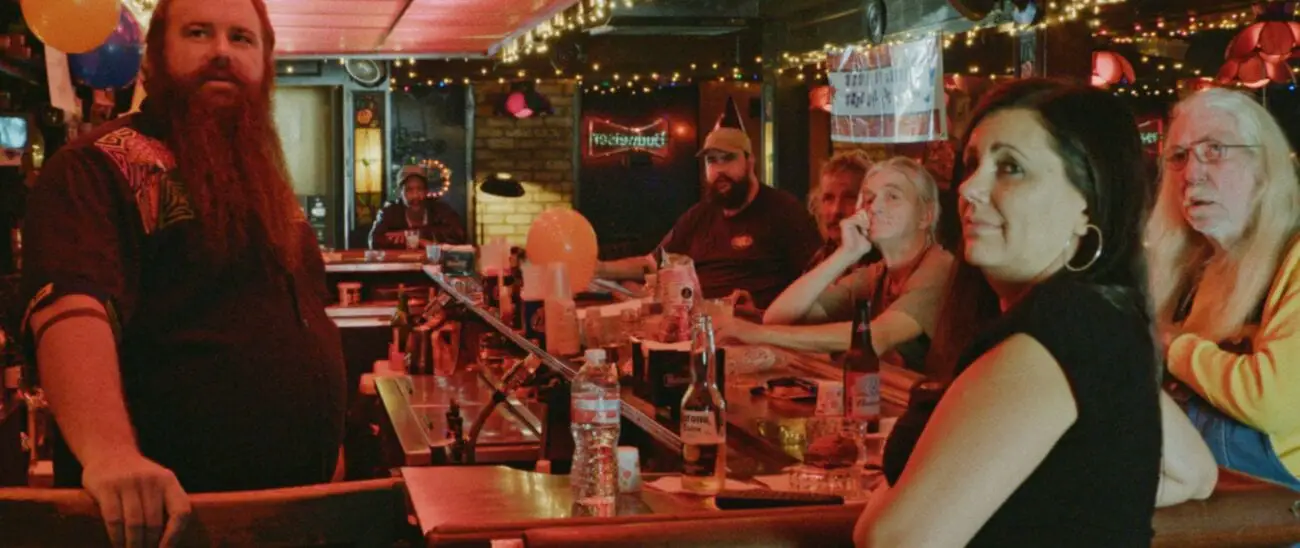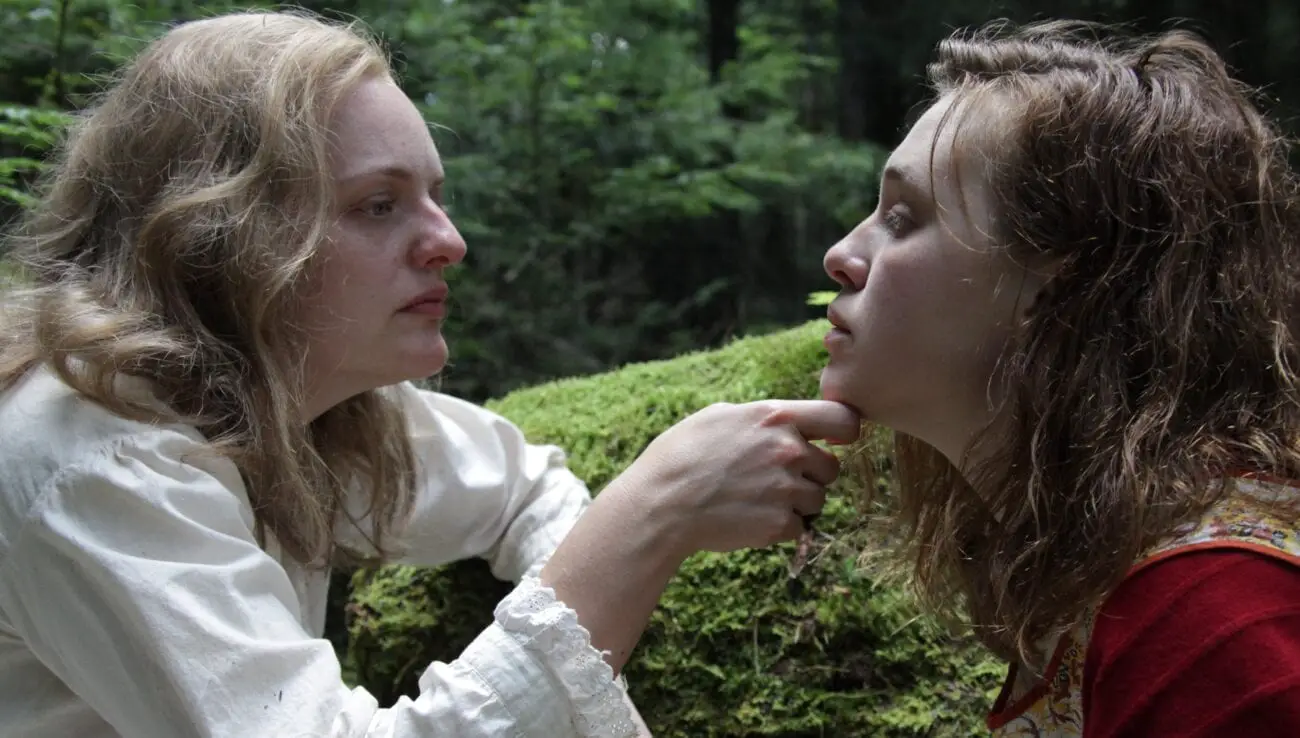Screenings kicked off on October 7th, the first official day of the festival. Mangrove, the first part of director Steve McQueen five-part anthology film series was selected to open the festival with its first day of in-person, public screenings. It was also joined by online screenings of Miranda July’s indie comic-drama Kajillionaire and the public screenings of The Disciple and Stray, reviews of which can be found on this site, in parts one and two of this review series. However, the separate critics virtual screenings continued unabated with a phenomenally strong line up of unmissable gems.
Mangrove
Director Steve McQueen has with just a few cinema releases, established himself as one of the premiere directors of UK cinema. Routinely tackling themes of injustice and racism with often shocking directness in films such as Hunger and 12 Years a Slave, he has also shown himself capable of bringing his incendiary and righteous attitude to compelling genre film, as he did with the heist thriller Widows. He is also rightly celebrated for his ability to elicit stunningly raw performances from his cast, as in his addiction drama Shame, which presented career-best performances from Carey Mulligan and Michael Fassbender.
Mangrove is the first of five forthcoming entries in his Small Axe anthology film series, the next of which Lover’s Rock will also be screened as part of this year’s festival. The prospect of five new films from McQueen in the coming months is a deeply energising one and if nothing else, Mangrove should allay any fears that quality would be sacrificed in favour of quantity. Although the film is set in 1968 Notting Hill, Mangrove could hardly feel more relevant or urgent than in 2020, with a timely and impassioned tale of activism and legal struggle.
The film dramatizes the case of the “Mangrove Nine”, a group of activists charged with riot and affray when protesting the systemic cultural genocide perpetrated by the metropolitan police against their community. The title comes from the Mangrove Restaurant, the proprietor of which Frank Crichlow (Shaun Parkes), was a key defendant at the trial, and which had in short order become a cultural centre for Notting Hill’s black community. As a result, the humble Crichlow becomes an unlikely community leader after his restaurant is repeatedly raided constabulary seeking an excuse to force out any black-owned community spaces.
These ideas of the importance of such localised cultural spaces are established right away in the film’s opening moments, as Crichlow exits a smoky Kingston barroom out into a British suburb of white walls and cast-iron railings. The film’s first half is an intense, frustrating catalogue of the extent and nature of the persecution exhibited towards the black residents, before the second hour shifts their struggle from London’s streets to its courthouses, in a taut and exhilarating courtroom drama.
Although Mangrove could hardly be more of an ensemble film, the central performance from Shaun Parkes is a sterling anchor and as the film moves into its second half he delivers some truly electrifying moments of anger. Letitia Wright (Black Panther) co-stars, as appropriately enough, a member of the UK Black Panthers and emerges from the shell of her previous supporting roles with a fiercely confident and emotionally resonant portrayal. Also deserving special mention are Alex Jennings, who effectively reprises his role of the inscrutable judge from the underrated Denial and stalwart actor Sam Spruell, who is at his most loathsome as the embodiment of British institutional racism and thuggery. Capped off with a typically stunning score from Mica Levi who never ceases to impress with her compositions, Mangrove is a tremendous and worthy addition to McQueen’s canon and a piece of filmmaking as phenomenally engaged as it is engaging.
Kajillionaire
Intermittent darling of the American indie scene Miranda July returns with her first feature film in nine years, and her third in total, Kajillionaire, an initially merely quirky piece of light comic-drama, which evolves into a sweet, tender and wonderfully romantic coming of age narrative. Evan Rachel Wood stars as Old Dolio, a 26-year-old homeschooled by her grifter parents (Debra Winger and Richard Jenkins) to be the perfect short con operator, who finds her long-dormant emotions awoken by the arrival of a new partner in crime, the beautiful and kind Melanie (Gina Rodriguez).

For much of its duration, Kajillionaire wends its way through its story with the affected eccentricity that came to define much of American indie filmmaking of the 2000s, however, there are two key moments that step the film up onto the level of something truly wonderful. Each one is tied to a different theme, the first being a vivid and surreal exploration of socially constructed ideas of family, their importance and effect of social development, expressed in a quietly heartbreaking scene where the oddball family attempt to recreate a loving home environment for one of their elderly marks. The second is a hypnotic sequence of a starlit night that elicits a sublime epiphany for Old Dolio, a stunningly beautiful moment of rebirth and renewal that kicks off the films third act.
Although its humour is rarely as impressive as its drama, and the film is often quite uncomfortable viewing, Kajillionaire is firmly anchored in the viewer’s affections by the superb work of Rodriguez and Wood, who are an utterly charming pairing, playing their complex and relatable characters to a tee. Old Dolio is a crooked, withdrawn figure, kept in a state of arrested adolescence by her parents, while Melanie is a warm, affectionate young woman, whose innocent confidence and tolerance is a delightful foil for the family trio. Even Jenkins and Winger, as repellent as their characters often are, manage to instil their roles with the awkward sense of pathos July’s bizarre scenario demands of them.
It may take a while to get into gear, but Miranda July’s third feature is nonetheless highly recommended, exhibiting the uncannily endearing qualities of her breakthrough work such as Me and You and Everyone We Know and slowly develops a gentle genius all of its own. The virtual public screening of Kajillionaire was on Wednesday, but the film is slated for release Friday 9th.
Bloody Nose Empty Pockets
One of the stranger and more retro releases of the festival, Bloody Nose Empty Pockets is a rustic, lavishly nostalgic slice of Americana from directing brothers Bill Ross IV and Turner Ross. Calling back to the aesthetics of 1970s American filmmaking of Wim Wenders and Werner Herzog, and as much a paean to shared community spaces as Mangrove, Bloody Nose Empty Pockets charts the final twenty-four hours of a tavern destined for closure in a decaying Nevada small town. This tavern is the Roaring Twenties, a bleary, sparkling and garish one room establishment, where seemingly all that has changed since the 1970s are the patrons and the songs on the jukebox. I kept half expecting Harry Dean Stanton to stagger in from the desert in a suit and ballcap.

In place of Stanton’s iconic wanderer, we have Michael, an aging former actor who turns up to take his morning shave in the bathroom sink and staggers out at the same time the following morning. He reportedly prides himself on “not having become an alcoholic until [he] was already a failure.” Michael’s perceptively bleak introspections form the thesis statements of the film, but beyond him, the Roaring Twenties is filled to the rafters with barflies, burnouts, surly alcoholics, taproom philosophers and amateur poets.
Many of the patrons are former veterans fallen upon hard times, few will have anywhere to go once the Roaring Twenties closes, nearly all are in some way loveable company, and most are drunk by mid-afternoon, some poured into cabs to take them to work barely able to walk. Perhaps as its closing day the management are being more lenient, more likely this is just business as usual. Although the fact the owner is tripping on acid suggests the former. As the day unfolds, the mundane and the life-changing seem to be in perfect balance, and as the drunken customers grow emotional it’s often hard to tell which you are seeing.
Despite the fly on the wall documentary approach, the conversations continually circle back around to the same germane topics: politics, generational conflict, the end of an era and perhaps the beginning of a new one. Take a shot every time someone says “it was fun while it lasted” and you’ll soon be as drunk as the patrons onscreen, their programme of purposeful dissolution soundtracked by a classic Peggy Lee torch song. It’s a full-on, too long, should’ve gone home hours ago and you’re getting emotional, tears-in-your-beer night out in documentary form, and a deeply poignant, emotional and revealing experience.
Shirley
Capping off the day’s viewing was Shirley, Josephine Decker’s follow up to her fantastic experimental coming-of-age horror Madeline’s Madeline, from which creative cloth Shirley immediately established that it had been cut. Decker employs the same nightmarish, disorienting, claustrophobic and unwholesome intimacy, one that is grotesque and repellent yet inescapably alluring and exciting. At one point a character describes the books of the title character Shirley Jackson (Elizabeth Moss) as “thrillingly horrible”, a tone Decker captures impeccably, throwing together an intoxicating concoction of sexual, academic and artistic jealousy.
Based on the novel of the same name, Shirley fictionalises events when Jackson’s professor husband (Michael Stuhlbarg) invites a teaching assistant (Logan Lerman) and his young pregnant wife Rose (Odessa Young) to live with them while they get settled. What unfolds is a protracted, perhaps less than impromptu sweat lodge, as the four engage in an emotional torture session homage to Who’s Afraid of Virginia Woolf?.
Shirley and Rose take an immediate dislike to one another but gradually come to a mutual, even sexually charged, understanding of one another. Between Queen of Earth and The Invisible Man, Moss has made a career in portraying characters mentally fraying and she gives another phenomenal turn as Jackson. Stuhlbarg meanwhile delivers a venal, lecherous dark half of his avuncular academic host role from Call Me By Your Name, and Lerman and Young round out the cast tremendously, building on the incredible promise they each showed in The Perks of Being a Wallflower and The Daughter.

However, Shirley remains, for my money, Decker’s show, incorporating interpretative dance as well as horror in the same theatrically rich fashion as Madeline’s Madeline, creating a deliciously Machiavellian tone, blending the film’s reality with the fiction Jackson is creating as she writes her novel. It’s an ideal project for her, as with her real work, sexuality and insanity are luridly married in Shirley, with one wondering whether Rose is actually attracted to Shirley or if she just hopes to claw back some form of sexual autonomy by their illicit flirtations. The film’s macabrely optimistic ending seems to suggest so as the cycle is condemned to repeat itself. However one reads it though, Shirley is a maliciously compelling piece of filmmaking from one of the most genuinely daring and invigorating directors of her generation.



